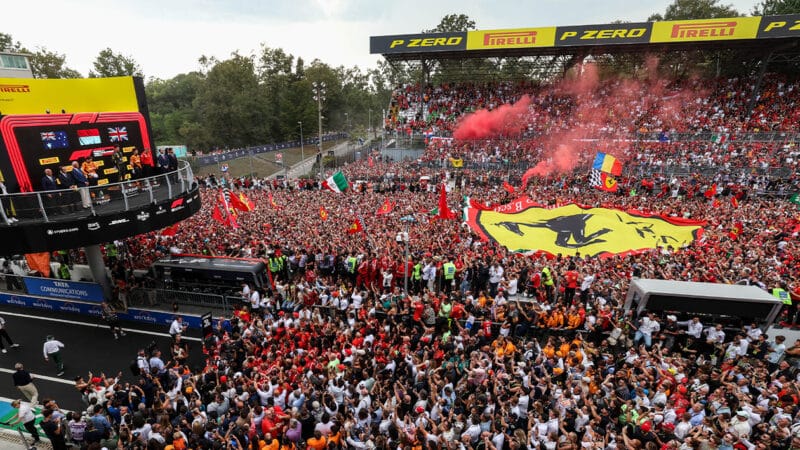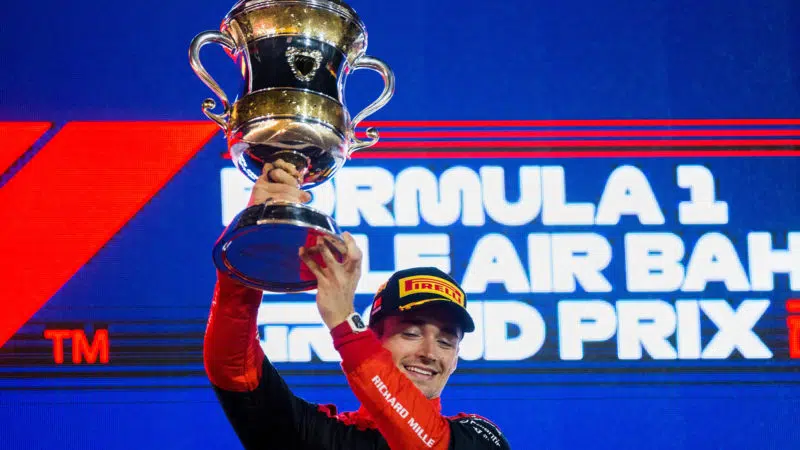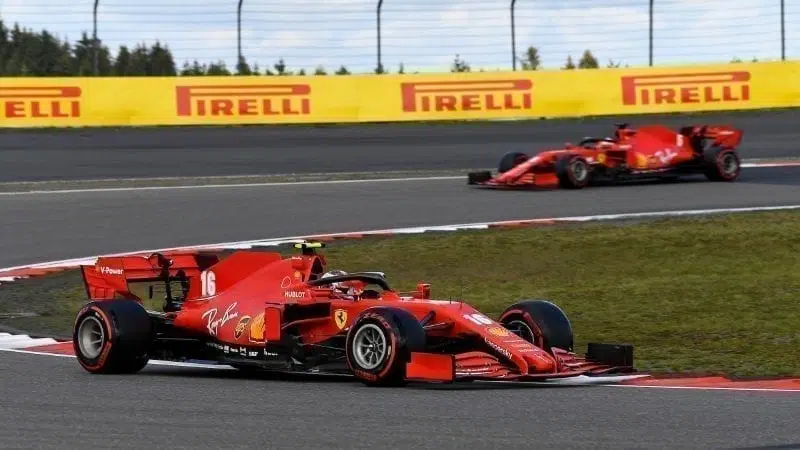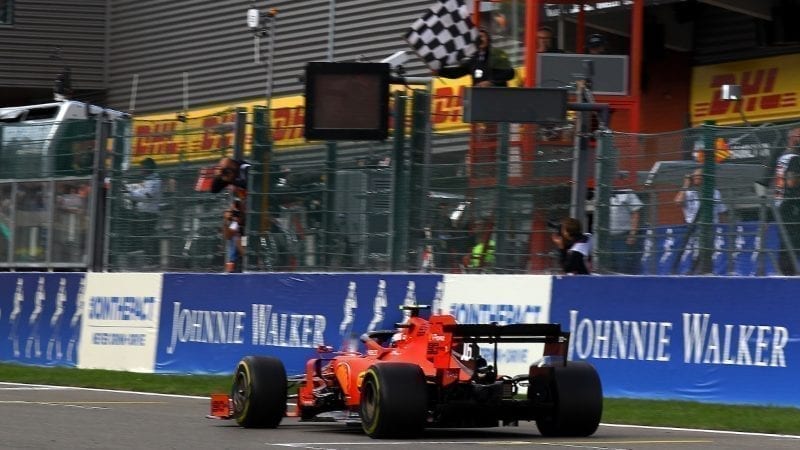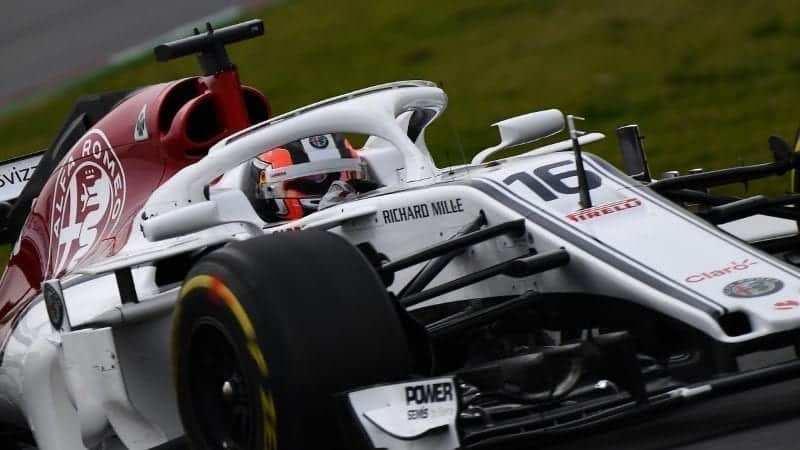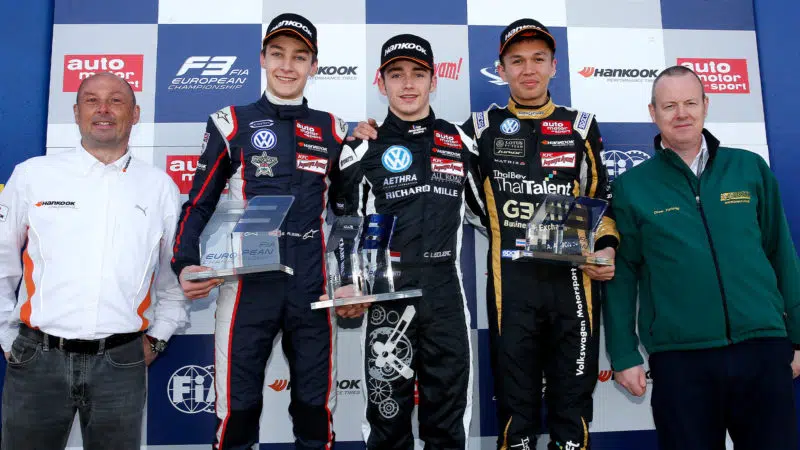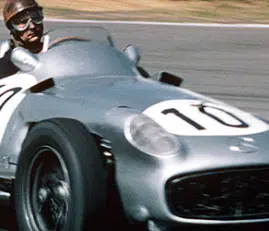His 2019 performance earned him the team leader role and Ferrari placed all of its faith in the Monégasque driver as the Scuderia replaced Vettel for 2021 before a wheel could even be turned in the delayed 2020 season. Leclerc couldn’t build on an impressive opening offering at Ferrari after the team was forced to rebuild its power unit after a private settlement was reached with the FIA over the legality of its old engine.
The result was Ferrari’s worst season for 40 years as it slumped to sixth in the championship. Despite this, Leclerc had some highlights including a podium at the season-opening race in Austria. He did attract criticism though from rivals for his opening-lap antics, often involved in too many incidents. Vettel and Max Verstappen highlighted Leclerc’s role in their Styrian and Sakhir crashes respectively.
Ferrari was able to rebound from its dismal 2020 season and the team was fighting for regular points against McLaren as best of the rest on the grid. Leclerc may have taken a win in Monaco but for his car developing a driveshaft fault after a crash in qualifying put him out before the race. He’d qualifying on pole the day before. A podium eventually arrived as he finished second in the British Grand Prix, but he couldn’t match new team-mate Carlos Sainz’s consistency. The Spaniard finished the season fifth in the drivers’ championship with Leclerc seventh. It marked the first time in his career that he’d been beaten by a team-mate in the championship.
2022 championship contender
Ferrari appeared to have the strongest car during preseason testing in 2022, as new regulations required entirely different cars and a fresh approach.
That suggestion was confirmed at the season-opening Bahrain Grand Prix, where Leclerc stormed to victory from pole, claiming a Ferrari 1-2 after Max Verstappen retired. Success followed him to Australia, where another dominant victory secured an early 46-point advantage over Verstappen.
But sadly for the Scuderia, unreliability and driver error plagued the majority of their season, causing to fall out of contention for both the drivers’ and constructors’ world titles.
After Leclerc’s engine failure in Baku, Ferrari chose to detune its power unit, which turned out to be its most major advantage over the rest of the field. The lack of performance ultimately meant Leclerc fell further and further behind in the title race, and his efforts to catch up caused errors – his most costly occurring at the French Grand Prix.
As Verstappen continued to dominate, Leclerc was forced into a race for second place against Sergio Perez, from which he emerged the victor after brilliant drives in Brazil and Abu Dhabi.
In 2023, Leclerc and Ferrari’s efforts were vastly overshadowed by the dominance of Red Bull. But even as the Milton Keynes outfit won all but one race across the season, Leclerc still, at times, proved to be a thorn in Verstappen’s side.
The Monegasque driver scored six podium finishes across the season, captured five pole positions and finished fifth in the drivers’ standings.
2024 was a bucket list year for Leclerc. Although, once again, he failed to secure the drivers’ title and Ferrari fell just short in the constructors’, he continued to demonstrate that with the right machinery, he was amongst the very best that grid had to offer.
Through the first seven races of the season, he finished no lower than fourth and captured four podium finishes. Then, on home turf in Monte Carlo, Leclerc put on a stunning display: securing pole before leading the entire race distance to the chequered flag to claim a historic victory.
After a brief spell of mid-season misfortune, Leclerc soon re-found his red hot form. Podium finishes in Belgium and Zandvoort were bettered by a brilliant victory in front of the tifosi at Monza and he rounded out the season with more top-three finishes in Mexico City, Qatar and Abu Dhabi.

